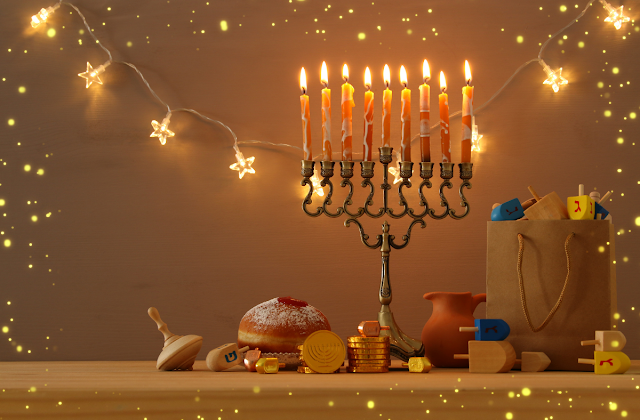Well, somehow we've made it to the winter holidays during this whirlwind of a school year! As exhausting as this year has been, I feel rejuvenated when I think about all of the fun holiday music I get to teach in the upcoming weeks. I like to share songs from many different cultures in order to make my music room an inclusive and welcoming place.
I know that I always feel gratitude when others acknowledge a holiday that I celebrate, and I'm sure my students do, too. However, I also know how awkward and othering it feels when someone tries to teach about one of my holidays and gets it just plain wrong.
As a Jewish teacher, I wanted to take some time this year to clarify some facts about the festival of lights:
What Chanukah is:
A festival lasting for eight nights celebrated by Jews around the world. It is a fun and uplifting holiday, full of fascinating symbolism. The story of Chanukah is a motivational tale of underdogs who persist despite great odds. There's gorgeous music and fun folk songs about this holiday that are a great addition to your elementary music lessons.
What Chanukah isn't:
It is NOT Jewish Christmas. In fact, from a liturgical standpoint, it is one of the lesser festivals and not the most religiously significant. The only reason it's become so popular is because of its proximity to Christmas on the calendar.
If you are not Jewish but are interested in teaching your students about Jewish music and culture, please double check the accuracy of the information you share with your classes. Did you get the song or lesson idea from an actual Jewish person?
Also, please be wary of these pitfalls when teaching music from another culture: Does your Chanukah lesson tokenize Jewish people? Is it the only time all year that you mention Jews? Are you including a Chanukah song in a concert that's otherwise all Christmas music, just so you can check off a box and call it inclusive? Can you accurately explain the difference between Jewish culture and the Jewish religion?
This time of year, I find many well-meaning folks sharing things that are just plain inaccurate. For instance, programming a random Hebrew song on a winter concert and saying it's for Chanukah, when it actually has nothing to do with the holiday. Likewise, it makes very little sense to teach Israeli folk dances as part of a Chanukah celebration. I like to teach Israeli dances in the spring, around Yom Ha'atzmaut (Israeli independence day.)
I'd suggest doing some research about other significant Jewish holidays as well, such as Passover and the high holy days. How can you include those in your music lessons during other times of the year?
So, what should you do?
If you've read this far, thank you for taking an interest in Jewish music! One of my favorite ways to teach my students about Chanukah is with a dreidel. I start by explaining the four Hebrew letters on the dreidel and the acronym that they represent: a great miracle happened there. (I also show my students a dreidel that I bought in Israel which says "happened here" instead.) This allows me to briefly tell the Chanukah story before we sing the dreidel song and play the game.
If you're looking for a resource to help you teach the dreidel song, I have a presentation you can get here. It also includes a printable DIY dreidel and gelt so that your students can make their own before they play the game.
I hope this post has helped you as you choose to make your music classroom an inclusive and welcoming place. Chag sameach!





